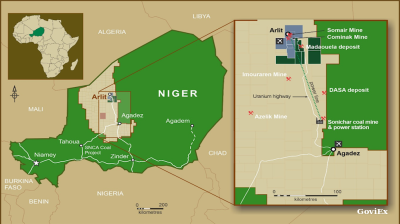Russian Foreign Minister Sergei Lavrov claimed a peace deal was reached with Ukraine last April and all the points were initialled before the deal was abandoned under Western pressure in his “Empire of Lies” speech at the UN on September 23.
The question of whether a peace deal was reached last April between Ukraine and Russia has become a huge controversial topic. As bne IntelliNews reported at the time, a report by Ukrainska Pravda at the time claimed a deal to stop the war was done between the Kremlin and Bankova in March and April. However, it was then abandoned after former UK Prime Minister Boris Johnson flew into Kyiv to meet with Ukrainian President Volodymyr Zelenskiy and advised him to abandon the deal, otherwise the West would withdraw its support.
Ukrainska Pravda walked that report back a few days later and the details of what happened have remained hotly contested ever since.
In his New York speech last weekend Russia’s veteran foreign minister seems to confirm that a deal had indeed been done.
"In March and April 2022 there were negotiations [on a peace deal], everything was already initialised. But two days later there was [the Bucha massacre], because, I think, someone in London or Washington does not want this war to end," Lavrov said. "That is why now, when we hear about negotiations, Putin commented on it, he said very clearly: yes, we are ready for negotiations, but we will not consider any proposals for a ceasefire, because we’ve considered it once, but you deceived us," Lavrov said.
"We were not only ready, we agreed to negotiate, we reached an agreement in April 2022. And after that, as I understand it, Zelenskiy was told: since they agreed so quickly, let's exhaust [Russia],” said Lavrov alluding to the reports that Johnson allegedly brought pressure to bear on Zelenskiy to abandon the deal.
Lavrov remains vague on the details and didn’t mention Johnson by name or even identify whether it was European or US pressure that scuppered the deal, if indeed that did happen.
At a press conference after his speech Lavrov said the US was “effectively engaged in hostilities with us, using the Ukrainians as fodder.”
“You can call this whatever you want to call this, but they are directly at war with us,” he said. “We call this a hybrid war. But that doesn’t change the reality.”
Lavrov also said Zelenskiy’s 10-point peace plan floated at the G20 summit in November 2022 was a non-starter, as it begins with the complete withdrawal of all Russian forces from Ukraine before talks can start. “It’s unworkable. Everyone knows it,” said Lavrov.
However, the Russian peace plan is equally unworkable, as it starts with Kyiv recognising Russia’s annexation of four Ukrainian regions on September 30 last year and Russia’s sovereignty over Crimea before talks can start, something that Bankova and the vast majority of Ukrainians themselves have dismissed out of hand.
Johnson’s role
The story of April’s peace plan is now shrouded in a fog of confusion.
Almost immediately after the war broke out, peace talks began and ran to three rounds on the border with Belarus in the spring of 2022, However, the physical meetings broke up without a breakthrough, but the talks continued for several weeks via video link.
During the talks some progress was made after Ukraine agreed to give up its Nato ambitions and also to put the issue of Crimea’s status aside for future talks. On the trickiest issue of Donbas there was a proposal that Zelenskiy and Russian President Vladimir Putin meet in person to see if they could thrash out a deal. Some commentators at the time suggested a formula that granted the Donbas autonomy, but it remaining an autonomous region inside Ukraine, was a possible compromise that could be made to work.
A deal seemed tantalisingly close.
Even as Zelenskiy stood in Bucha viewing the evidence of the massacre of civilians by departing Russian troops that is considered one of the major Russian war-crimes of the conflict, he said in comments broadcast on Ukrainian TV that he was still considering doing the peace deal, as he had “no other choice.”
Speaking in an interview with Ukrainian journalists that was broadcast on state television on April 5, Zelenskiy called the events in Bucha "unforgivable," and that "all of us, including myself, will perceive even the possibility of negotiations as a challenge."
"The challenge is internal, first of all, one's own human challenge. Then, when you pull yourself together, and you have to do it, I think that we have no other choice," he added.
Everything changed after Johnson arrived a few days later, who told Zelenskiy the West would not support any peace deal, according to a report in the highly respected Ukrainska Pravda.
“According Ukrainska Pravda sources close to Zelenskiy, the Prime Minister of the United Kingdom, Boris Johnson, who appeared in the capital almost without warning, brought two simple messages: the first is that Putin is a war criminal, he should be pressured, not negotiated with; and the second is that even if Ukraine is ready to sign some agreements on guarantees with Putin, they are not,” Ukrainska Pravda journalists Iryna Balachuk and Roman Romaniuk reported.
Three days after Johnson left for the UK, Putin went public and said talks with Ukraine "had turned into a dead end," the Russian Ministry of Foreign Affairs said at the time.
The Ukrainska Pravda journalists soon walked back their report, clarifying that it was not clear that Johnson had scuppered a deal.
Nevertheless, other evidence has emerged to support the narrative that a deal was done and Johnson shot it down.
US foreign policy advisor Fiona Hill added credence to the original report in an article she wrote for Foreign Affairs saying that a deal was indeed agreed, and suggested the deal was only dropped after Johnson’s visit to Kyiv.
“Russian and Ukrainian negotiators appeared to have tentatively agreed on the outlines of a negotiated interim settlement,” wrote Fiona Hill and Angela Stent in Foreign Affairs. “Russia would withdraw to its position on February 23, when it controlled part of the Donbas region and all of Crimea, and in exchange, Ukraine would promise not to seek Nato membership and instead receive security guarantees from a number of countries.”
Former Israeli Prime Minister Naftali Bennett also confirmed that the West had blocked a potential peace deal in an interview posted to his YouTube channel in February this year. Bennett, who was participating in the talks between Ukraine and Russia, said of the US and its European allies, “Basically, yes. They blocked it, and I thought they were wrong,” speaking of the efforts to end the war in March and April.
On March 4, 2022, Bennett travelled to Russia to meet with President Vladimir Putin. In the interview he detailed his mediation at the time between Putin and Ukrainian President Volodymyr Zelenskiy, which he said he had co-ordinated with the US, France, Germany and the UK.
Bennett said that both sides had agreed to major concessions during his mediation effort. For the Russian side, he said they had dropped “denazification” as a requirement for a ceasefire. Bennett defined “denazification” as the removal of Zelenskiy. During his meeting in Moscow with Putin, Bennett said the Russian leader guaranteed that he wouldn’t try to kill Zelenskiy.
The other concession Russia made, according to Bennett, is that it wouldn’t seek the disarmament of Ukraine. For the Ukrainian side, Zelensky “renounced” that he would seek Nato membership, which Bennett said was Putin's motivation for starting the war.
Israeli officials at the time told Axios on March 8 that Russia was softening its position. Putin’s “proposal is difficult for Zelensky to accept but not as extreme as they anticipated. They said the proposal doesn’t include regime change in Kyiv and allows Ukraine to keep its sovereignty,” according to the officials.
Bennett also suggested that Johnson, who was in the midst of a political crisis at home that led to his resignation, was the key actor in bringing the mooted peace deal down. Bennett said Johnson took an “aggressive line” while French President Emmanuel Macron and German Chancellor Olaf Scholz were more “pragmatic.” Bennett said President Biden adopted “both” positions.
Bennett said that while he was acting as a mediator tasked with finding a peace formula, he ultimately backed the Western decision to continue the war. “I’ll say this in the broad sense. I think there was a legitimate decision by the West to keep striking Putin and not [negotiate],” Bennett said in his long interview.
After the Russian press picked up on Bennett’s story, he walked the comments back somewhat, saying that no deal had actually been agreed to block and he himself said in the same interview he wasn’t sure a deal would be desirable anyway.
News

GoviEx, Niger extend arbitration pause on Madaouela uranium project valued at $376mn
Madaouela is among the world’s largest uranium resources, with measured and indicated resources of 100mn pounds of U₃O₈ and a post-tax net present value of $376mn at a uranium price of $80 per pound.

Brazil’s Supreme Court jails Bolsonaro for 27 years over coup plot
Brazil’s Supreme Court has sentenced former president Jair Bolsonaro to 27 years and three months in prison after convicting him of attempting to overturn the result of the country’s 2022 election.

Iran cleric says disputed islands belong to Tehran, not UAE
Iran's Friday prayer leader reaffirms claim to disputed UAE islands whilst warning against Hezbollah disarmament as threat to Islamic world security.

Kremlin puts Russia-Ukraine ceasefire talks on hold
\Negotiation channels between Russia and Ukraine remain formally open but the Kremlin has put talks on hold, as prospects for renewed diplomatic engagement appear remote. Presidential spokesman Dmitry Peskov said on September 12, Vedomosti reports.



